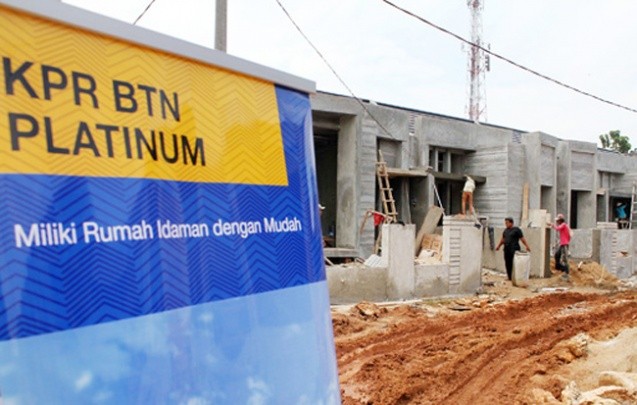Popular Reads
Top Results
Can't find what you're looking for?
View all search resultsPopular Reads
Top Results
Can't find what you're looking for?
View all search resultsState-owned banks restructure $1.84b in loans to soften COVID-19 impacts
The COVID-19 pandemic is hampering economic activity and weakening debtors’ ability to pay back loans.
Change text size
Gift Premium Articles
to Anyone
State-owned banks have collectively restructured almost Rp 29 trillion (US$1.84 billion) in loans as the COVID-19 pandemic hampers economic activities and weakens debtors’ ability to repay their debts.
All four state-owned banks, namely Bank Tabungan Negara (BTN), Bank Rakyat Indonesia (BRI), Bank Mandiri and Bank Negara Indonesia (BNI), have restructured their debtors’ loans following a new Financial Services Authority (OJK) rule that relaxes debt quality assessment and restructuring requirements for debtors hit by the pandemic.
BTN finance, planning and treasury director Nixon Napitupulu said in a statement on Sunday that the mortgage-focused bank had restructured loans of more than 17,000 of almost 2 million debtors totaling Rp 2.7 trillion.
“The restructured debts include subsidized mortgage loans below Rp 10 billion in accordance with OJK rules,” he said in a statement.
Other state-owned banks also approved debtors’ requests for loan restructuring.
The latest OJK data shows that BRI has restructured a total of Rp 14.9 trillion of loans from 134,258 debtors, while Bank Mandiri has granted requests of 10,592 debtors to restructure loans amounting to Rp 4.1 trillion. BNI, meanwhile, has restructured a Rp 6.9 trillion in loans from 6,238 debtors.
As the pandemic has yet to show signs of slowing down in Indonesia, Nixon said the bank was revising down its loan growth target for this year.
The bank now expects its nonsubsidized and commercial mortgage loans to grow around zero percent to 3 percent this year, while issuance of subsidized mortgage loans was expected to grow by 6 percent to 8 percent, depending on when the pandemic would end.
BTN’s reduced loan growth target also took into account a decline in new loan applications all over Indonesia due to the spread of the coronavirus in the country, Nixon said.
Despite the sluggish loan growth, BTN was still optimistic it would book Rp 2 trillion in profit this year, significantly higher than 2019’s profit of Rp 209.26 billion.
“In a situation like today, we choose to increase efficiency and strengthen our provision and liquidity to survive,” said Nixon.










